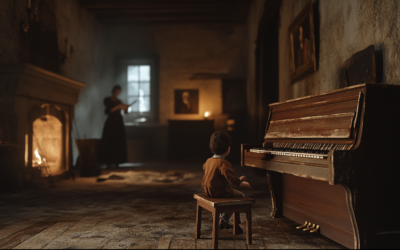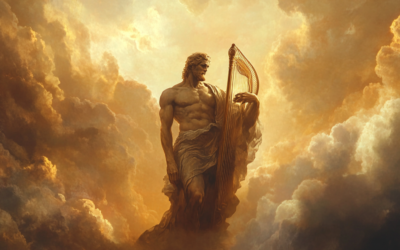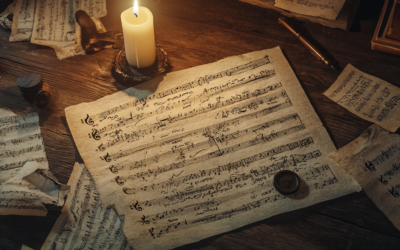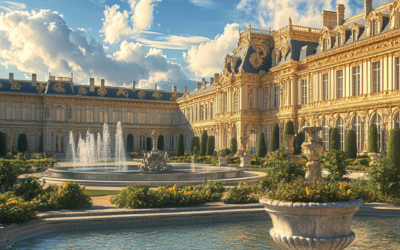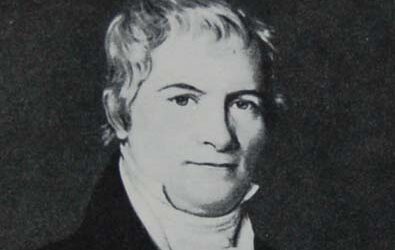Rediscovering Tozzi, Gatti, and Traetta
Composers Overshadowed by Mozart Finally Take Centre Stage
The modern premieres of Antonio Tozzi, Luigi Gatti, and Tommaso Traetta’s works at Bayreuth revealed just how unfairly these Italian composers have been overshadowed by Mozart’s inflated reputation. Their music, transcribed and revised by Luca Bianchini and Anna Trombetta, finally takes the stage in a long-overdue revival.
Mozart: The Fall of the Gods
This book offers a fresh and critical look at the life of Wolfgang Amadeus Mozart, challenging the myths that have surrounded him for centuries. We strip away the romanticised image of the “natural genius” and delve into the contradictions within Mozart’s extensive biographies. Backed by nearly 2,000 meticulously sourced citations, this work invites readers to explore a deeper, more complex understanding of Mozart. Perfect for those who wish to question the traditional narrative, this biography is a must-read for serious music lovers and historians.
"The works of Tozzi, Gatti, and Traetta reveal the richness of 18th-century Italian music, proving that many great composers have been unfairly overshadowed by history."
@MozartrazoM
The Bayreuth Baroque Opera Festival has shone a much-needed light on the forgotten works of Italian composers Antonio Tozzi, Luigi Gatti, and Tommaso Traetta—composers who, despite their immense talent, have been largely overshadowed throughout history. While these composers were celebrated in their time, their works have faded into obscurity, often overshadowed by the reputation of other composers of the Classical period. Thanks to our meticulous transcriptions and revisions, these works have finally received the recognition they deserve in a series of modern premieres at the prestigious Markgräfliches Opernhaus in Bayreuth.
The programme opened with Pensa che in campo armato by Antonio Tozzi. Once widely respected across Europe, Tozzi’s music has been overlooked for far too long. This powerful piece, with its rich orchestration and deep emotional content, is a testament to Tozzi’s mastery as a composer. The revival of Pensa che in campo armato highlights the remarkable depth and originality found in 18th-century Italian music, a tradition that has not always received the attention it merits.
Following Tozzi’s aria was Puoi vantar le tue ritorte by Luigi Gatti. Gatti was a key figure in his era, yet history has often overlooked his significant contributions. In revising this piece, we took special care to honour the intricate melodies and refined orchestration that characterise Gatti’s style. We also composed a new cadenza for the performance, further showcasing the beauty and complexity of his work. This aria serves as a reminder that many deserving composers have not received the recognition that matches their talents.
The final aria of the evening, Mentre ti lascio, o figlia by Tommaso Traetta, brought the concert to a stunning close. Traetta’s aria concertante, drawn from La disfatta di Dario, is an extraordinary example of his ability to blend drama and lyricism. Despite the quality of his work, Traetta’s music has largely remained in the shadows, yet Mentre ti lascio, o figlia demonstrates that he is a composer whose work deserves far more attention.
The performances, delivered by the outstanding tenor Daniel Behle and the Concerto Köln orchestra under the direction of Evgenii Sviridov, captivated the audience. Behle’s warm, expressive voice brought out the emotional depth of each aria, and the synergy between him and the orchestra breathed new life into these long-neglected works. The concert highlighted the importance of rediscovering these composers, whose contributions to music history have been overlooked for far too long.
The audience’s reaction was particularly striking. Many were clearly discovering for the first time that composers like Tozzi, Gatti, and Traetta had been unfairly marginalised in favour of others. The enthusiastic applause and standing ovations after each performance showed a deep appreciation for the brilliance of these Italian composers—a recognition that is long overdue.
The revival of these works is not just a performance but also a way to correct historical oversights. For centuries, the focus of Classical music history has been too narrow, often concentrating on a handful of figures while overlooking equally, if not more, talented composers. The Bayreuth Baroque Opera Festival offered a platform to begin balancing this narrative, celebrating the music of Tozzi, Gatti, and Traetta and restoring their rightful place in the classical canon.
This project would not have been possible without the collaboration of Ray Martinez, a project leader and researcher, and Daniel Freeman, whose commitment to uncovering these forgotten gems has been invaluable. Together, we have worked tirelessly to ensure that these works are heard and appreciated by modern audiences.
For those who missed the live performances, there is still an opportunity to experience these groundbreaking works. The entire concert has been broadcast by the German radio station BR-KLASSIK and is available for online listening. This wider reach ensures that more people will have the chance to appreciate the true masters of the Classical period, whose contributions have been overlooked for far too long.
The significance of this concert cannot be overstated. It proves that the works of Tozzi, Gatti, and Traetta represent the richness and diversity of 18th-century Italian music—a musical tradition that deserves far more recognition. It is time to broaden our understanding of this period and give these remarkable composers their rightful place in history.
You May Also Like
The Myth of Mozart’s Childhood
Mozart’s childhood is often romanticised, but behind the myth lies a more complex reality. This post explores the hidden dynamics within his family, questioning the traditional narrative of Mozart's early years and shedding light on the forgotten role of his sister,...
Bohemia or Moravia: Reconfiguring Music History
Why does music history insist on an Austrian narrative, when the contributions of other nations are just as crucial?
The True Caregiver: A Closer Look at Mozart’s Final Days
Who truly cared for Mozart in his final days: his wife Constanze or his sister-in-law Sophie? The True Caregiver unravels this age-old mystery, challenging our perceptions and shedding light on the figures closest to the composer in his last hours.
The Mysterious Origins of Mozart’s K.115
The story of Mozart’s Mass K.115 is one of myth and mistaken identity, pointing not to Wolfgang’s genius but rather to his father Leopold’s hidden influence.
Unveiling the Truth: Mozart in Paris
Unveiling the often-overlooked reality of Mozart’s time in Paris reveals a story of manipulation and deception, far removed from the glorified narratives crafted by his father, Leopold.
The Questionable Legacy of Niemetschek’s Biography
Leopold Mozart’s life was a whirlwind of ambition, deceit, and disappointment—a stark portrait of a man chasing success at any cost.


